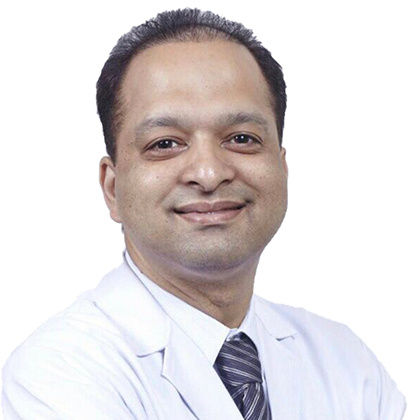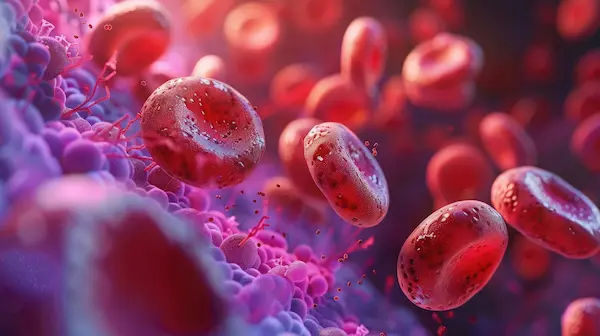How To Increase Bilirubin?

Written by
Last updated on 21st Jul, 2025

Introduction
Bilirubin is a yellow pigment produced when your body breaks down old red blood cells. While high bilirubin levels can indicate health issues like jaundice or liver problems, low bilirubin levels may also sometimes be a concern. If your doctor has advised you to increase your bilirubin levels, here’s a simple guide to help you understand why and how you can do so safely.
Understanding Bilirubin
Bilirubin is a natural byproduct of red blood cell breakdown. It travels to the liver, where it’s processed and eventually excreted through bile. There are two types:
- Unconjugated (indirect) bilirubin – Unconjugated bilirubin is produced when old red blood cells break down. It is not water-soluble and needs to be transported to the liver for processing.
- Conjugated (direct) bilirubin – Once in the liver, unconjugated bilirubin is converted into conjugated (direct) bilirubin, making it water-soluble. This allows it to be excreted through bile and eventually in stool.
- Low bilirubin levels are rare but may be linked to certain conditions like iron deficiency, anaemia, or oxidative stress. If your bilirubin is too low, your doctor may suggest dietary or lifestyle changes to support healthy levels.
Consult Top Doctors for Personalised Treatment
How to Increase Bilirubin Naturally
If your bilirubin levels are low, there are several natural ways to help support its production and overall liver health.
1. Eat Iron-Rich Foods
Since bilirubin comes from red blood cell breakdown, iron deficiency can lower its production. Include:
- Red meat, liver, and poultry
- Spinach, lentils, and beans
- Fortified cereals and nuts
2. Support Liver Health
A healthy liver processes bilirubin efficiently. Try:
- Turmeric – Supports liver function.
- Beetroot & carrots – Help detoxify the liver.
- Green tea – Contains antioxidants.
3. Stay Hydrated
Water helps flush toxins and supports liver function, aiding bilirubin metabolism.
4. Exercise Moderately
Regular physical activity improves circulation and red blood cell turnover, which may help maintain bilirubin levels.
5. Avoid Excessive Alcohol
Too much alcohol can harm the liver, affecting bilirubin processing.
6. Get Enough Sleep
Proper rest helps the body regenerate cells, including red blood cells.
When to See a Doctor
While mild bilirubin fluctuations are normal, persistently low levels may need medical evaluation. If you experience:
- Fatigue or weakness
- Pale skin and other signs of anaemia
- Unexplained weight loss
- Consult a doctor to rule out underlying issues like iron deficiency or liver dysfunction.
Final Thoughts
Increasing bilirubin naturally involves supporting red blood cell production and liver health. A balanced diet, hydration, and a healthy lifestyle can help. However, always follow your doctor’s advice before making changes.
If you have concerns about your bilirubin levels, Apollo 24|7 offers expert consultations. Book one today to stay informed about your health!
Consult Top Hepatologists
Consult Top Doctors for Personalised Treatment

Dr. Aakash Garg
Gastroenterology/gi Medicine Specialist
12 Years • MBBS, DNB (Medicine), DrNB (Gastroentrology).
Bilaspur
Apollo Hospitals Seepat Road, Bilaspur
(125+ Patients)

Dr. E Prabhakar Sastry
General Physician/ Internal Medicine Specialist
40 Years • MD(Internal Medicine)
Manikonda Jagir
Apollo Clinic, Manikonda, Manikonda Jagir
(125+ Patients)

Dr. Srinivasa Reddy
Hepatologist
12 Years • MBBS, MD (General Medicine), DM (Hepatology),ASGE
Hyderabad
Myra Liver & Gastro Care, Hyderabad

Dr. Rajeev Shandil
Gastroenterology/gi Medicine Specialist
15 Years • MBBS, DNB (Internal Medicine), DNB (Gastroenterology)
Delhi
Apollo Hospitals Indraprastha, Delhi
(125+ Patients)

Dr. Aswin S. Krishna
Hepatologist
10 Years • MBBS, MD (Internal Medicine,MMC), DM (Hepatology, MMC), PDF(Fellowship in Liver Transplanatation)
Chennai
Apollo Hospitals Greams Road, Chennai
(100+ Patients)
Consult Top Hepatologists

Dr. Aakash Garg
Gastroenterology/gi Medicine Specialist
12 Years • MBBS, DNB (Medicine), DrNB (Gastroentrology).
Bilaspur
Apollo Hospitals Seepat Road, Bilaspur
(125+ Patients)

Dr. E Prabhakar Sastry
General Physician/ Internal Medicine Specialist
40 Years • MD(Internal Medicine)
Manikonda Jagir
Apollo Clinic, Manikonda, Manikonda Jagir
(125+ Patients)

Dr. Srinivasa Reddy
Hepatologist
12 Years • MBBS, MD (General Medicine), DM (Hepatology),ASGE
Hyderabad
Myra Liver & Gastro Care, Hyderabad

Dr. Rajeev Shandil
Gastroenterology/gi Medicine Specialist
15 Years • MBBS, DNB (Internal Medicine), DNB (Gastroenterology)
Delhi
Apollo Hospitals Indraprastha, Delhi
(125+ Patients)

Dr. Aswin S. Krishna
Hepatologist
10 Years • MBBS, MD (Internal Medicine,MMC), DM (Hepatology, MMC), PDF(Fellowship in Liver Transplanatation)
Chennai
Apollo Hospitals Greams Road, Chennai
(100+ Patients)

